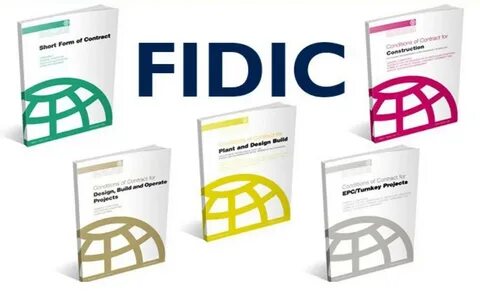
Expert Contract Management
Expert Contract Management: The Strategic Backbone of Business Success Contract management isn’t just about paperwork, signatures, and document storage. It’s the strategic function at the heart of every successful organization, serving as the backbone for managing business relationships, risks, and legal obligations. Whether it’s procurement, sales, or partnerships, expert contract management ensures that value is delivered, risks are minimized, and long-term relationships are nurtured. This blog explores Expert Contract Management, highlighting its core principles, real-life applications, the impact on business performance, regional trends, and how you can master this vital function. Introduction to Expert Contract Management At its core, expert contract management refers to the full oversight of a contract from start to finish—starting from the initial drafting and negotiation phase, moving through execution and implementation, followed by monitoring compliance, and concluding with performance evaluation, renewal, or closure. Key Areas of Expertise in Contract Management Contract Drafting and Negotiation: Experts ensure contracts align with legal requirements and business goals. Execution and Implementation: Overseeing the effective execution of contract terms to ensure parties adhere to the agreed-upon conditions. Compliance and Risk Monitoring: Actively monitoring compliance with contract terms and proactively managing risks. Performance Measurement: Measuring contract performance and taking corrective actions when necessary. Conflict Resolution: Addressing disputes in a fair and effective manner. An expert contract manager brings value by leveraging specialized knowledge of negotiation strategies, legal clauses, risk assessment, and relationship management. Their skills ensure that all parties fulfill their obligations, minimize risks, and maximize value from the contract. Why is Expert Contract Management Crucial? Organizations that adopt expert contract management practices can: Save costs by negotiating favorable terms and ensuring compliance. Avoid disputes and delays, which can lead to financial and reputational damage. Strengthen relationships with clients, vendors, and stakeholders. Ensure the organization remains compliant with ever-changing regulations. Real-Life Examples, Solutions & Impact Example 1: Multinational Construction Firm Challenge: A global construction firm was facing significant delays and disputes with suppliers due to poorly drafted contracts. These delays were leading to costly project overruns, reducing profitability. Solution: The firm hired a contract expert who implemented centralized Contract Lifecycle Management (CLM) software and improved the drafting process. Contracts were streamlined, performance clauses were clarified, and penalties for late delivery were clearly outlined. Impact: 70% reduction in disputes with suppliers. Project timelines were shortened by 20%, leading to increased profitability. Improved vendor relationships, fostering smoother collaborations. Example 2: IT Services Company Challenge: An IT services company struggled with vague service-level agreements (SLAs) that led to unmet expectations and disputes with clients over delivery timelines. Solution: A contract expert was brought in to revise the SLAs with clearer performance metrics, penalties for non-compliance, and specific deadlines. Provisions for continuous performance monitoring were incorporated into the contracts. Impact: Customer satisfaction scores increased by 30%. Fewer breaches of contract, leading to more renewals and long-term partnerships. The company gained a competitive edge due to its reliable delivery model. Trends and Types of Contract Management by Region Contract management is not a one-size-fits-all approach. Different regions face unique challenges and opportunities, requiring varying contract management practices and tools. Region Trends & Types of Contract Management Unique Challenges North America Heavy reliance on Tech-driven CLM tools and outsourcing contracts. Data privacy laws (GDPR, CCPA), complex regulations in multiple industries. Europe Focus on GDPR-compliant contracts and cross-border contracts. Ensuring compliance across diverse legal systems and jurisdictions. Asia-Pacific Procurement contracts and growth in outsourcing and partnership agreements. Navigating diverse legal systems, language barriers, and varying standards. Middle East Strong focus on infrastructure contracts and government agreements. Bureaucratic delays, shifting legal frameworks, and political instability. Africa Increasing prevalence of public-private partnerships and NGO contracts. Limited legal resources, inconsistent contract enforcement, and development challenges. Case Studies Case Study 1: Oil & Gas Procurement Contract Client: A midstream energy firmIssue: The company was facing delays and budget overruns due to poorly managed supplier contracts. Expert Intervention: A contract expert rewrote the procurement contracts with clearer performance clauses and included financial incentives for on-time delivery. Outcome: $2M in potential penalties was avoided. The project was completed on time, ensuring it stayed within budget. A more collaborative relationship with suppliers was established. Case Study 2: Pharmaceutical Licensing Agreement Client: A biotech startupIssue: Ambiguities in the intellectual property (IP) clauses were jeopardizing the company’s ability to secure long-term investment. Expert Intervention: A contract expert renegotiated the licensing agreement, focusing on clear IP ownership and royalty terms that protected the company’s interests. Outcome: Protected the company’s IP from future disputes. Facilitated a $50M acquisition, driving the startup’s valuation higher. Pros and Cons of Expert Contract Management Pros Cons Minimizes Legal Risks: Proactive risk management reduces the likelihood of costly litigation. Requires Investment in Training/Software: Setting up an expert contract management system can be resource-intensive. Enhances Stakeholder Trust: Transparency in agreements fosters strong business relationships. Complex Processes Can Slow Decisions: In large organizations, contract approval cycles may slow down decision-making. Improves Financial Outcomes: Well-negotiated contracts lead to cost savings and profitability. Over-reliance on Software Tools: Relying too much on CLM software may lead to issues being overlooked without human oversight. Reduces Disputes: Effective contract management leads to fewer misunderstandings and conflicts. May Increase Initial Contract Timelines: Contracts may take longer to negotiate and finalize due to thorough risk assessments. Enables Better Performance Tracking: Metrics help improve future contract performance. Continuous Updates Required with Regulations: Changing laws require constant monitoring and contract adjustments. Steps to Become a Contract Management Expert Becoming a contract management expert requires a blend of formal education, professional certifications, practical experience, and continuous learning. Here’s a step-by-step guide to help you navigate the journey: 1. Educational Background To start, it’s important to have a solid foundation in business, law, or contract management. This educational background will equip you with the knowledge of legal frameworks, negotiation strategies, and business principles essential for effective contract management. Recommended Degrees: Business Administration or Management for an understanding of organizational structures and operations. Law or Corporate Law for knowledge of legal terms, liabilities, and compliance. Contract Management









